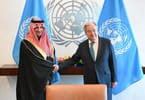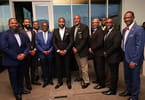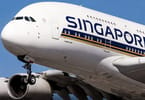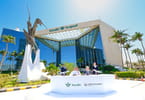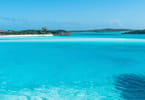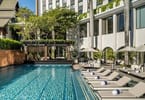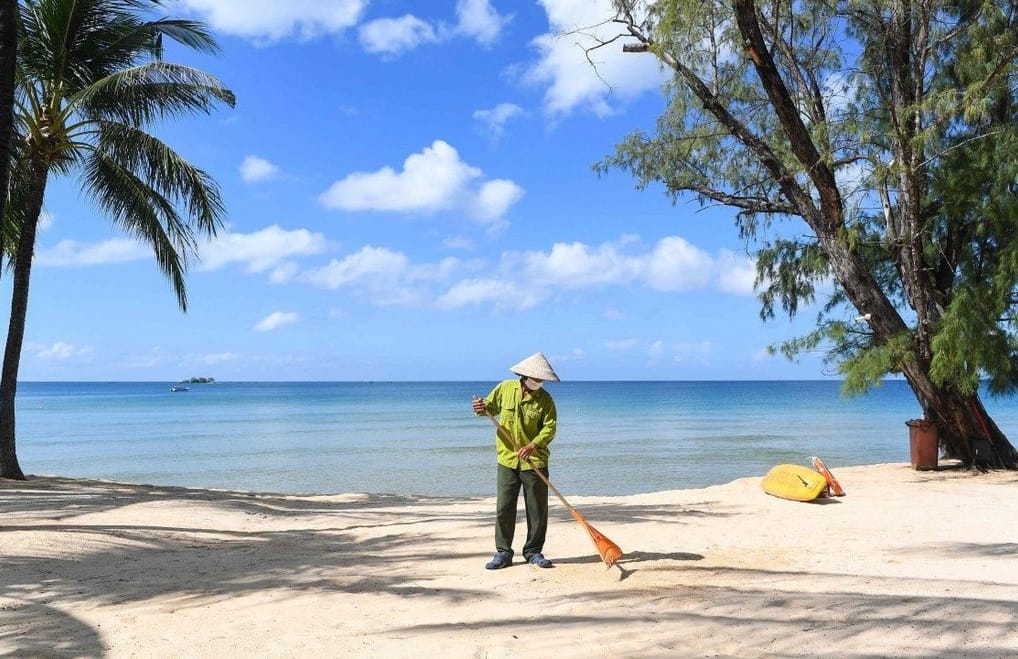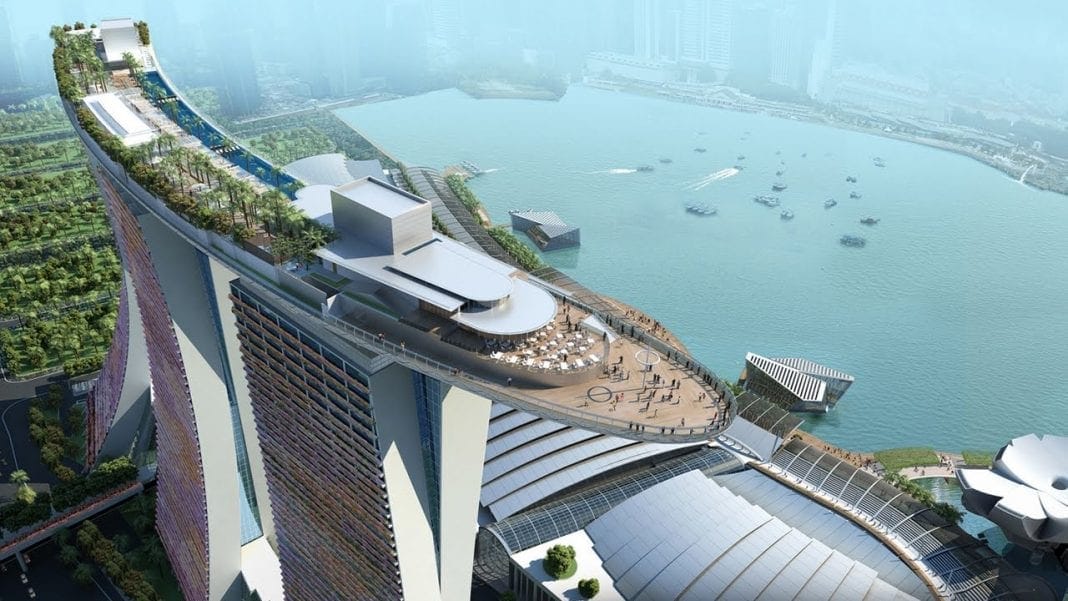In an unexpected turn of events with links to a 2006 bombing, Lebanon freed three men jailed for more than three years for the assassination of former Prime Minister Rafik Hariri. They were released on bail February 25, days before an international tribunal was to begin trying the case and 11 days after Hariri’s death anniversary. According to Lebanese news sources, Judge Saqr Saqr did not explain his decision to release two Lebanese brothers on a bail of 500,000 Lebanese pounds ($330) each and a Syrian man on a bail of just 100,000 Lebanese pounds ($67). The three could still be prosecuted in the case, although no one has been charged in the suicide bombing that killed Hariri and 22 others on a seaside street in Beirut on Feb. 14, 2005, according to published reports.
Hariri and 17 others on his official motorcade died instantly after a 500-kg bomb detonated in Lebanon’s capital city leaving a gaping crater wider than 15 meters in diameter. The powerful blast ripped through Beirut’s highly progressive, most upscale tourist district, damaging Beirut’s top landmark property Phoenicia Inter-Continental, and neighboring hotels such as the Monroe Hotel on Kennedy Street, the Palm Beach, the Vendome Inter-Continental, Riviera Hotel on Ain el Mraisseh and the St. Georges Beach resort, marina and restaurant opposite the Phoenicia. All 6 hotels lie along the sea-front bin al Hassan Street.
Lebanese official news said the judge would keep four other suspects in the bombing (all pro-Syrian Lebanese generals) behind bars. He
said he will allow them to be turned over to the international court. At the time of the assassination, the generals headed the police, military intelligence, a General Security agency, and the Presidential Guard Brigade.
The late leader definitely had set a precedence in terms of developing most tourist sites and facilities in Lebanon, foremost of which was the $500 million investment SOLIDERE he created to give downtown Beirut an impressive makeover. Hariri renovated the downtown area after the war, reportedly with some of his own money. The last mission he’d carried out was the development of the war-ravaged blocks in the capital, a legacy he left behind for others in the trade to sustain.
Different from the February 22, 2009 Cairo blast, the blast that killed Hariri however did not target the tourists (it was a low season for the entire city running 65 percent occupancy), but rather aimed solely at the Prime Minister. No tourists died. At the Monroe which took the brunt of the impact, nobody was seriously hurt, despite the hotel windows having sea-facing rooms that broke into splinters and flew right back into the guest rooms and dining outlets. The Monroe, at the time, was a new art-deco hotel with an all-glass façade and steel structure. Harir’s biggest detractor, Fadi el Khoury who owned the landmark, historic St. George Hotel (on whose nearby sidewalk the bomb exploded) felt like it was a total overhaul for his property just undergoing refurbishment. Palm Beach hotel was reduced to sheer wreck. Its owner and general manager Khalil Allam was rushed to the intensive care as the bomb was planted on a wall some few feet away from the hotel entrance. Across the street, the Phoenicia just had an extensive three-year $100-million renovation. The 446-room hotel has breathed life to Beirut’s 1960’s glamour, landmark streets and pre/post-war icon. It was and remains the biggest in Beirut with conference facility accommodating up to 2000 guests. At its busiest, it was aggressively targeting the corporate, conference clientele of the region. Tourists booked for the picturesque views of the marina and the SOLIDERE development area that Hariri spearheaded for the Rebuild Beirut project.
The multi-million dollar downtown complex, Lebanese Company for the Development and Reconstruction of Beirut or SOLIDERE, was considered Hariri’s brainchild and barometer of Lebanese economy. Hariri, the vision behind Lebanon’s post-war reconstruction, was the architect of this development in downtown Beirut, which rose from its Dresden-type ruins to a lucrative, world-class tourism attraction. He owned 10 per cent of the shares in SOLIDERE and died within meters of his own empire.
Rebuilding Lebanon had been his ultimate goal since his first appointment as Prime Minister in October 1992, at the head of a government controlled by late Syrian leader Hafez Al Assad. With a profile showing strong ties with the Saudi Arabian aristocracy and the Syrians at the time, Hariri whose first term lasted till 1998 was the best bet to head the nationwide reconstruction, let alone finance portions of it.
As the company responsible for rebuilding downtown Beirut, SOLIDERE has been the centerpiece in Lebanon’s recovery. Formed under Law 177 of 1991 as a private-sector company listed on the stock exchange, it is the firm responsible for rejuvenating the 1.8 million square meter war-ravaged Beirut Central District (BCD), the country’s largest private sector property and one of the largest Arab firms open to virtually all foreign investors. Owners were allowed to exchange property rights in the development in return for 2/3 of the company Class A shares totaled at $1.17 billion. The project was financed through the 65 million Class B shares issued at a total of $650 million.
Years before 1974, tourism comprised 20 percent of the country’s gross national product. Lebanon was indeed the capital of inbound travel and tourism in the region. However, fifteen years of civil war shattered the image of the country after its boom time lasting till the 1960s. One and a half decades of war crushed its tourist economy. Time passed, the numbers picked up again in the early 1990s. An average growth of 14 percent between 1995 and 1999 proved Lebanon’s tourism was back on track. Arrivals from Arab countries increased with the total 1995 figure registering 151,993 despite the country just coming out of civil unrest.
In 1999, tourism revenues contributed 7.3 percent to GDP; delivering high results – second only to overseas workers’ remittances – to the domestic foreign exchange earnings. Nearly 675,000 tourists visited Lebanon in 1999 – a small count by regional standards. Sadly, the number however never snowballed. Early in 2000, the industry suffered a sharp blow to security due to Israeli air strikes. In October 2004, it reported better times with the arrival of 943,000 guests in August 2004, up by 31 percent from previous year. Lebanon had 15,000 rooms to sell and 3000 more anticipated that year. There was huge expectation for a flood of foreign investments in the tourism sector despite regional conflict. But the “phoenix” did not ever rise again.
Due to the political instability, tourist count remained low compared to others’ in the region. Violent attacks prevented effective investments in Lebanon, reflecting badly on tourism. Israelis occupied more than 10 percent of the country – a fact that posed grave economic pressures even before September 11. Lebanon, despite being a tinderbox of resources and people, today pales beside the United Arab Emirates and Egypt by a far cry due to its inadequate tourist facilities and support infrastructure. The last war with the Hezbollah and Israeli troops simply pushed the country deeper into the darkest pit.
WHAT TO TAKE AWAY FROM THIS ARTICLE:
- The powerful blast ripped through Beirut's highly progressive, most upscale tourist district, damaging Beirut's top landmark property Phoenicia Inter-Continental, and neighboring hotels such as the Monroe Hotel on Kennedy Street, the Palm Beach, the Vendome Inter-Continental, Riviera Hotel on Ain el Mraisseh and the St.
- The three could still be prosecuted in the case, although no one has been charged in the suicide bombing that killed Hariri and 22 others on a seaside street in Beirut on Feb.
- The last mission he'd carried out was the development of the war-ravaged blocks in the capital, a legacy he left behind for others in the trade to sustain.



